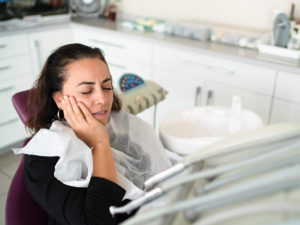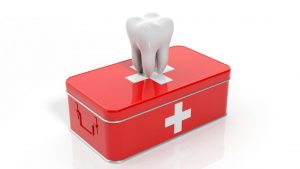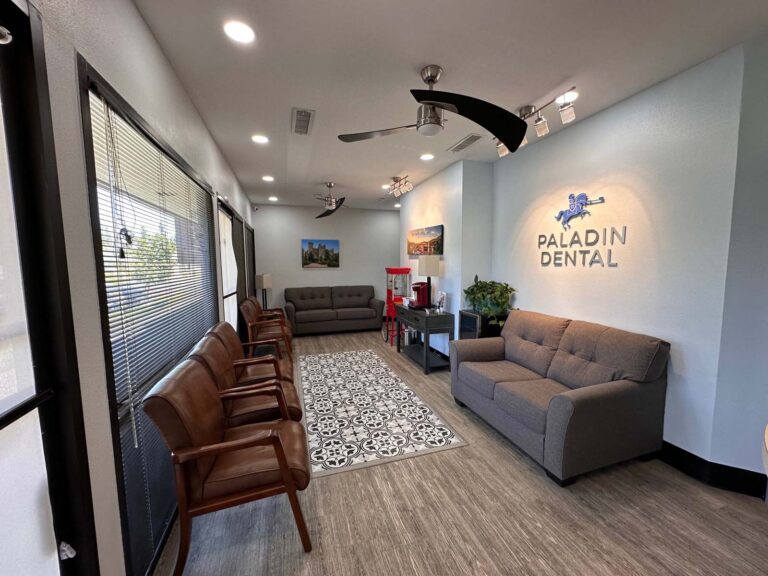If you are experiencing what you think to be a dental emergency, please give us a call as soon as possible at the number 559-436-8288 to schedule an appointment for the same day. If you call outside of the hours that are stated below for our office, or if we are unable to answer the phone when you call, please leave a message, and we will get back to you as soon as we can.
Office Hours:
Tuesday: 7:00 am – 5:00 pm
Wednesday: 7:00 am – 5:00 pm
Thursday: 7:00 am – 5:00 pm
Friday: 8:00 am – 12:00 pm

Emergency Dental Visit Costs in Fresno, CA
Facing a dental emergency can be stressful enough without worrying about the costs involved. At Paladin Dental, we strive to make your urgent care as affordable as possible. An emergency exam with necessary X-rays costs $161.00, ensuring you receive prompt and efficient diagnosis without a significant financial burden.
For those with insurance, we are in-network with many major providers, including Aetna PPO, Ameritas, Blue Cross Blue Shield, Cigna PPO, Guardian, Humana, Metlife, Principal, and United Concordia, which may cover part or all of the cost of your emergency treatment. We also welcome Delta Dental members. Our staff is ready to assist you in filing your claim and maximizing your benefits to reduce your out-of-pocket expenses.
Don’t let concern over costs prevent you from getting the urgent dental care you need. Contact us immediately if you are experiencing a dental emergency.
Financial and Insurance Information
What is a Dental Emergency?
A dental emergency refers to any situation that requires immediate attention to address severe pain, significant bleeding, or risk to oral health. Here are some common scenarios that are considered dental emergencies:
- Severe Toothache: Pain that is intense and persistent, especially if accompanied by signs of infection like fever, swelling, or a foul taste in the mouth.
- Knocked-Out Tooth: If a tooth is completely dislodged from its socket, immediate treatment can sometimes save the tooth.
- Loose or Displaced Tooth: A tooth that is significantly loosened or partially knocked out (extruded) due to trauma.
- Chipped, Cracked, or Broken Teeth: Significant fractures that cause pain or sharp fragments that threaten to cut the inside of the mouth.
- Dental Abscess: An infection at the root of a tooth or between the gums and teeth, which can be life-threatening if not treated promptly. Symptoms may include severe, throbbing pain, swelling, and visible pus.
- Bleeding Gums or Trauma to Soft Tissue: This includes injuries to the lips, gums, or inside of the cheeks that result in significant bleeding.
Responding quickly to a dental emergency is crucial to prevent the situation from worsening and to increase the chances of a favorable outcome. In many cases, the sooner you seek treatment, the better the chances of saving injured or damaged teeth.
Home Care for Dental Emergencies
-
What if my tooth gets knocked out?
- Act Quickly: Time is critical in saving a knocked-out tooth. Handle the tooth by the crown (top part), not the root.
- Clean Gently: If the tooth is dirty, rinse it gently under cold water. Do not scrub or remove any attached tissue fragments.
- Reinsert if Possible: Try to put the tooth back in its socket. If this isn’t possible, or you’re unable to do it without force, move to the next step.
- Keep It Moist: Store the tooth in a container of milk, or if milk is not available, place it in your mouth next to your cheek to keep it moist. Avoid storing the tooth in water.
- Seek Immediate Dental Care: Visit us as soon as possible. The chance of saving the tooth decreases significantly if not reimplanted within an hour.
-
What if my tooth is loose but still attached?
- Avoid Touching or Twisting: Do not try to force the tooth back into place yourself as this could cause further damage.
- Limit Movement: Try to keep the tooth as stationary as possible. You can bite down gently on a soft material like gauze or a tea bag to stabilize it.
- Avoid Chewing on That Side: Shift your chewing to the opposite side to prevent putting pressure on the loose tooth.
- Contact Your Dentist Promptly: A loose tooth still needs professional evaluation and treatment to assess the extent of injury and necessary interventions.
-
What if I have a chipped or cracked tooth?
- Rinse Your Mouth: Clean your mouth gently by rinsing with warm water to remove any debris.
- Use Cold Compress: If there is pain or swelling, apply a cold compress to the outside of your cheek to reduce it.
- Cover Sharp Edges: If the broken tooth has sharp edges, cover them with a piece of wax paraffin or sugarless chewing gum to protect your tongue and cheek.
- Take Over-the-Counter Pain Relief: Use over-the-counter pain relief if necessary, but avoid placing aspirin directly against the gums near the broken tooth as this can cause tissue damage.
- See Your Dentist Soon: Visit your dentist as soon as possible. Minor chips can be smoothed out or filled, while more significant fractures may require more extensive treatment.

